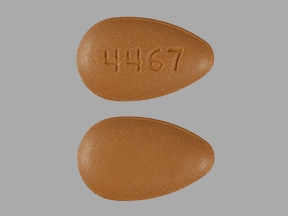What is Adcirca?
Adcirca is a prescription medicine used to treat pulmonary arterial hypertension (PAH, high blood pressure in your lungs) to improve your ability to exercise.
It is not known if Adcirca is safe or effective in children.
What is the most important information I should know about Adcirca?
Never take Adcirca with any nitrate or guanylate cyclase stimulator medicines:
- Your blood pressure could drop quickly to an unsafe level
- You could get dizzy, faint and even have a heart attack or stroke.
Nitrates include:
- Medicines that treat chest pain (angina)
- Nitroglycerin in any form including tablets, patches, sprays, and ointments
- Other nitrate medicines (isosorbide mononitrate or dinitrate)
- Street drugs that are inhaled, called “poppers” (amyl nitrate, butyl nitrate or nitrite)
Guanylate cyclase stimulators include:
- Riociguat (Adempas) a medicine that treats pulmonary arterial hypertension and chronic-thromboembolic pulmonary hypertension
Ask your healthcare provider or pharmacist if you are not sure if you take a nitrate or guanylate cyclase stimulator medicine.
Who should not take Adcirca?
Do not take Adcirca if you:
- take any medicines called nitrates.
- use recreational drugs called “poppers” like amyl nitrate, butyl nitrate or nitrite.
- take any medicines called guanylate cyclase stimulators
- are allergic to tadalafil or any other ingredient in Adcirca. See “What are the ingredients in Adcirca?” at the end of this guide.
See “What is the most important information I should know about Adcirca?”
What should I tell my healthcare provider before taking Adcirca?
Before taking Adcirca, tell your healthcare provider about all of your medical conditions, including if you:
- are allergic to Adcirca or Cialis or any of its ingredients. See the end of this leaflet for a complete list of ingredients in Adcirca.
- have pulmonary veno-occlusive disease (PVOD)
- have heart problems such as angina (chest pain), heart failure, irregular heartbeats, or have had a heart attack
- have low blood pressure or high blood pressure that is not controlled
- have had a stroke
- have liver problems
- have kidney problems or get dialysis
- have stomach ulcers
- have retinitis pigmentosa, a rare genetic eye disease
- have ever had any sudden vision loss, including any damage to your optic nerve or NAION.
- have ever had hearing problems such as ringing in the ears, dizziness, or loss of hearing
- have a deformed penis shape or Peyronie's disease
- have had an erection that lasted more than 4 hours
- have blood cell problems such as sickle cell anemia, multiple myeloma, or leukemia
- are pregnant or planning to become pregnant. It is not known if Adcirca will harm your unborn baby. Talk to your healthcare provider if you are pregnant or plan to become pregnant.
- are breastfeeding or plan to breast feed. It is not known if Adcirca passes into your breast milk. You and your healthcare provider should decide if you will take Adcirca or breastfeed. You should not do both.
Tell your healthcare provider about all the medicines you take, including prescription and non-prescription medicines, vitamins, and herbal supplements. Adcirca and other medicines may affect each other.
Especially tell your healthcare provider if you take any of these medicines*:
- nitrates or guanylate cyclase stimulators (see “What is the most important information I should know about Adcirca?”)
- anti-hypertensives, used to treat high blood pressure. Your blood pressure could suddenly drop. You could get dizzy or faint.
- alpha blockers, used to treat prostate disease and high blood pressure. Your blood pressure could suddenly drop. You could get dizzy or faint.
- protease inhibitors, used to treat HIV infection, such as ritonavir (Norvir, Kaletra)
- ketoconazole (Extina, Xolegel, Ketozole, Nizoral A-D, Nizoral) itraconazole (Sporanox)
- erythromycin (several brand names exist. Please consult your healthcare provider to determine if you are taking this medicine)
- rifampin (Rifadin, Rifamate, Rifater, Rimactane)
- bosentan (Tracleer)
- phenobarbital, phenytoin (Dilantin), carbamazepine (Tegretol)
- CIALIS or other medicines or treatments for erectile dysfunction (impotence).
- Adcirca is also marketed as Cialis for the treatment of male erectile dysfunction (ED, impotence) and for the signs and symptoms of benign prostatic hyperplasia (BPH, enlarged prostate). Do not take both Adcirca and Cialis. Do not take Adcirca and other medicines or treatments for erectile dysfunction.
Ask your healthcare provider or pharmacist for a list of these medicines, if you are not sure.
Know the medicines you take. Keep a list of them and show it to your healthcare provider and pharmacist when you get a new medicine.
How should I take Adcirca?
- Take Adcirca exactly as your healthcare provider tells you.
- Take Adcirca tablets at the same time every day. You should take both tablets at the same time, one after the other, every day. Do not split your dose.
- Adcirca can be taken with or without food.
- Do not change your dose or stop taking Adcirca without speaking to your healthcare provider.
- If you take too much Adcirca, call your healthcare provider or go to an emergency department right away.
What should I avoid while taking Adcirca?
Do not have more than 4 alcohol-containing drinks in a short period of time while you take Adcirca. Drinking too much alcohol can lower your blood pressure. You could get dizzy or faint.
What are the possible side effects of Adcirca?
The following side effects were reported rarely in patients taking tadalafil:
- Decreased eyesight or loss of vision in one or both eyes (NAION). If you notice a sudden decrease or loss of vision in one or both eyes, contact a healthcare provider right away.
- Sudden decrease or loss of hearing, sometimes with ringing in the ears and dizziness. If you notice a sudden decrease or loss of hearing, contact a healthcare provider right away.
- In men, an erection that lasts more than 4 hours (with or without pain). Talk to your healthcare provider or go to the emergency department right away. An erection that lasts more than 4 hours must be treated as soon as possible or you can have lasting damage to your penis, including the inability to have erections.
See "What is the most important information I should know about Adcirca?”
The most common side effects with Adcirca include:
- headache
- muscle pain
- getting red or hot in the face (flushing)
- nausea
- pain in the arms, legs, or back
- upset stomach
- stuffy or congested nose
Tell your healthcare provider about any side effect that bothers you or does not go away.
These are not all the possible side effects of Adcirca. For more information, ask your healthcare provider or pharmacist. Call your doctor for medical advice about side effects. You may report side effects to FDA at 1-800-FDA-1088.
Adcirca Images
General information about the safe and effective use of Adcirca
Medicines are sometimes prescribed for conditions that are not mentioned in patient information leaflets. Do not use Adcirca for a condition for which it was not prescribed. Do not give Adcirca to other people, even if they have the same symptoms you have. It may harm them.
This patient information leaflet summarizes the most important information about Adcirca. If you would like more information, talk with your healthcare provider. You can ask your healthcare provider or pharmacist for information about Adcirca that is written for healthcare professionals. For more information, go to www.ADCIRCA.com or call 1-800-LILLYRX (1-800-545-5979).
How should I store Adcirca?
Store Adcirca at room temperature between 59° and 86°F (15° and 30°C).
Keep Adcirca and all medicines out of the reach of children.
What are the ingredients in Adcirca?
Active Ingredient: tadalafil
Inactive Ingredients: croscarmellose sodium, hydroxypropyl cellulose, hypromellose, iron oxide, lactose monohydrate, magnesium stearate, microcrystalline cellulose, sodium lauryl sulfate, talc, titanium dioxide, and triacetin.


